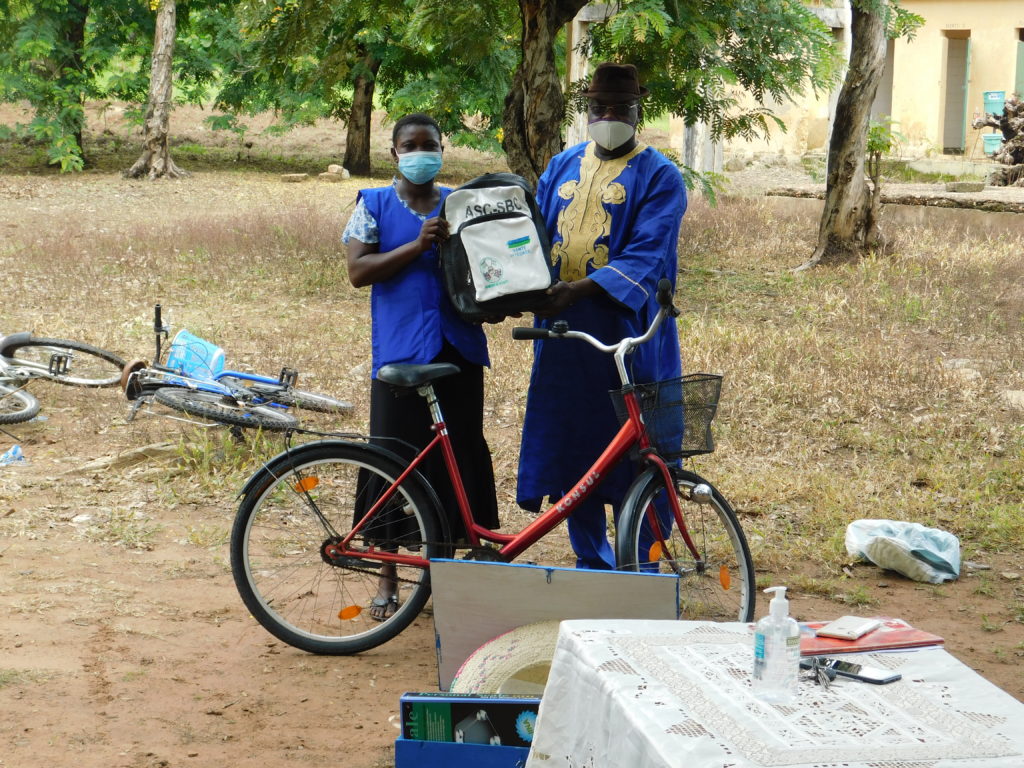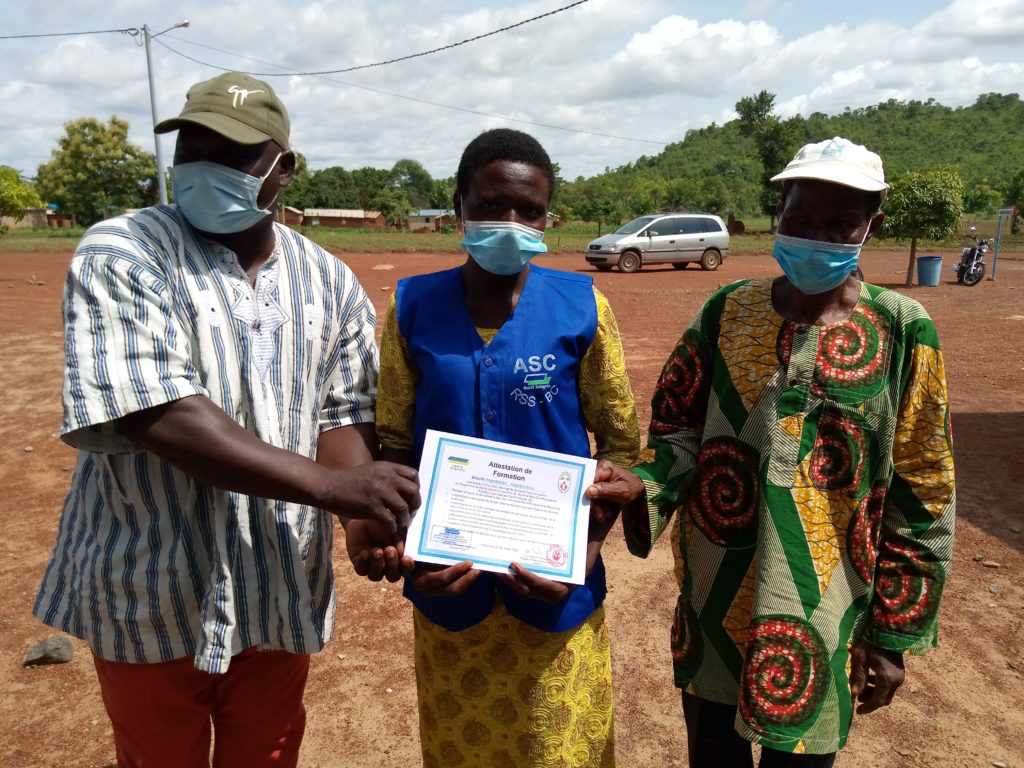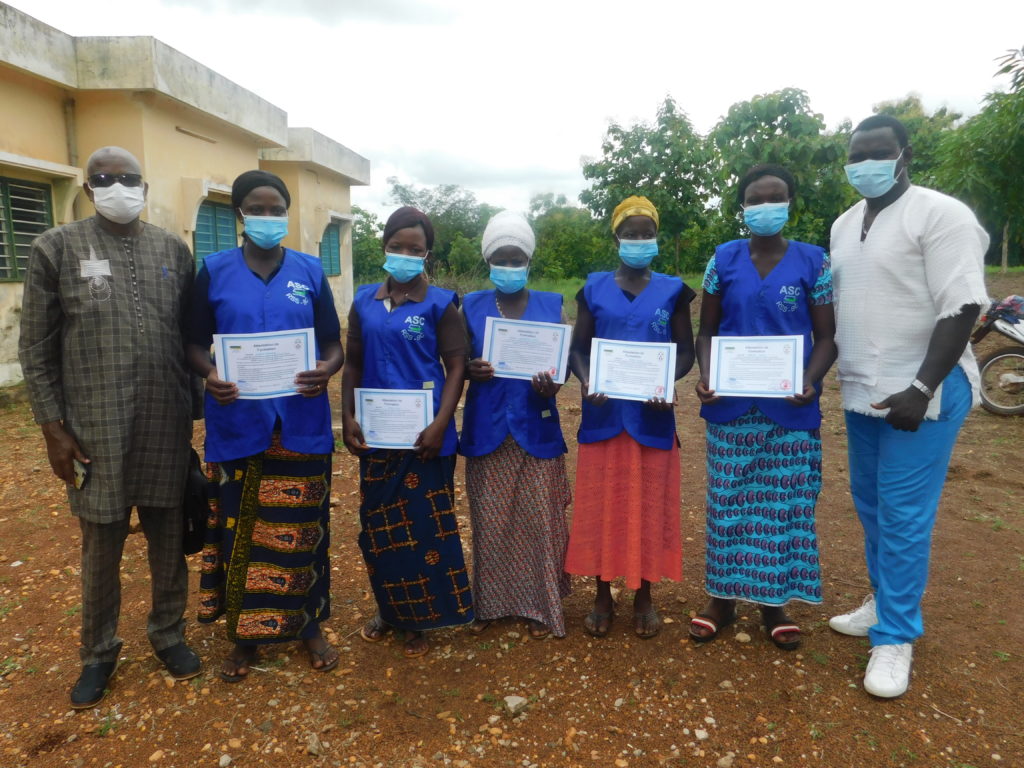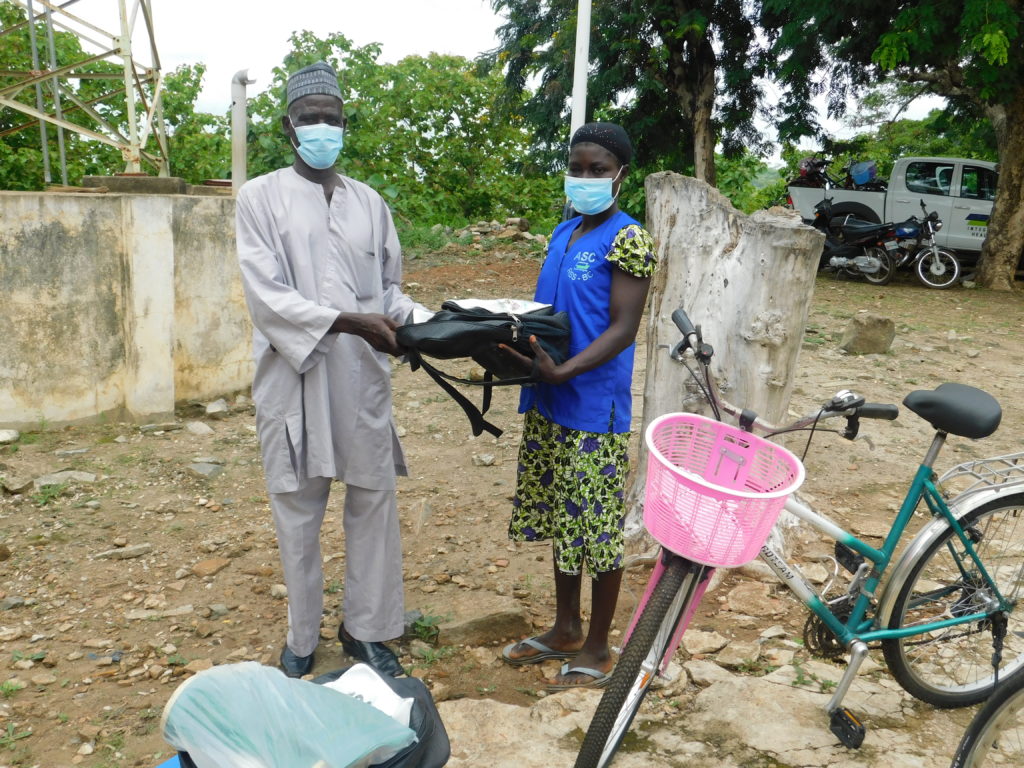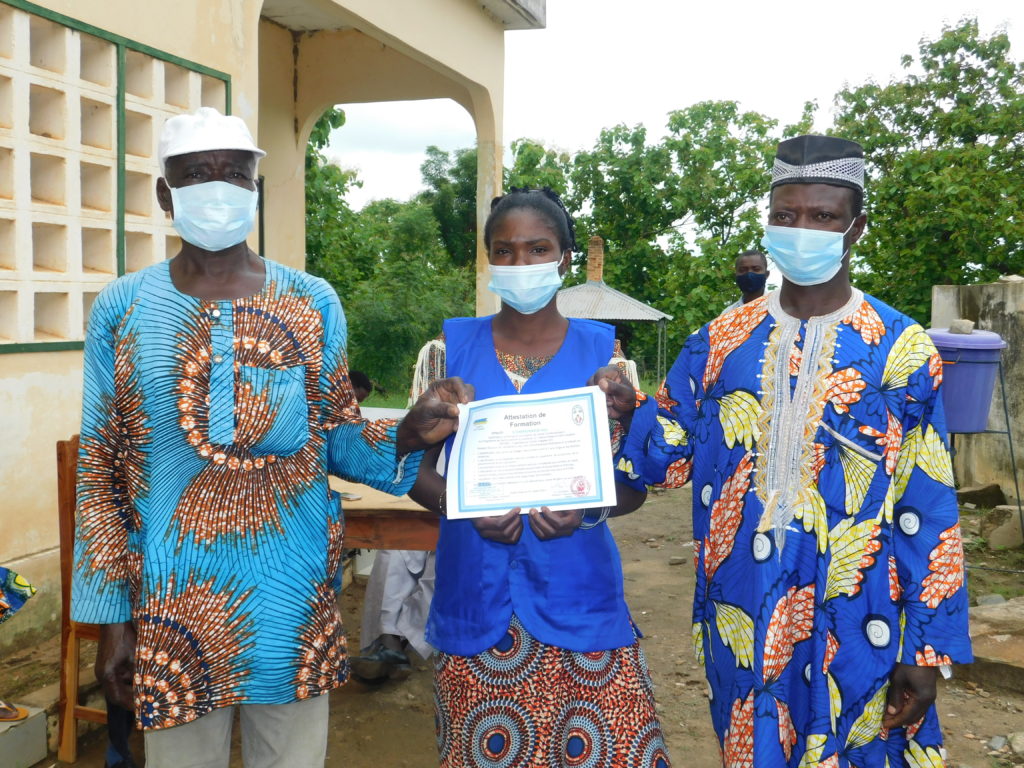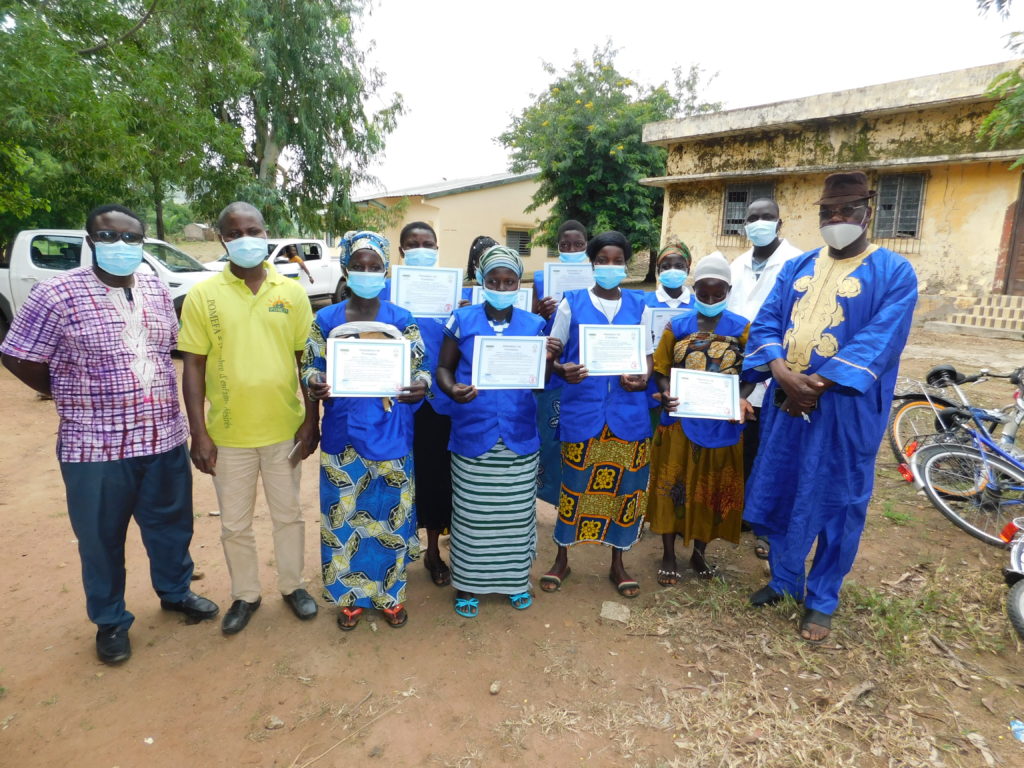I distinctly remember meeting Veronique during her first months working as an Integrate Health-supported Community Health Worker. We were in the district of Kozah, the first district to launch the Integrated Primary Care Program in 2015. Both Veronique and I were filled with hope about the path ahead. She was part of the first class of full-time salaried Community Health Workers in the northern Kara region of Togo. She had never been a healthcare provider before. We, at Integrate Health, had just launched the Integrated Primary Care Program pilot to serve 40,000 people. Little did we know that just three years later, we would have a plan with the government to replicate the approach into four additional districts. Fast forward six years, and Integrate Health has now expanded into a fifth district serving over 200,000 people.
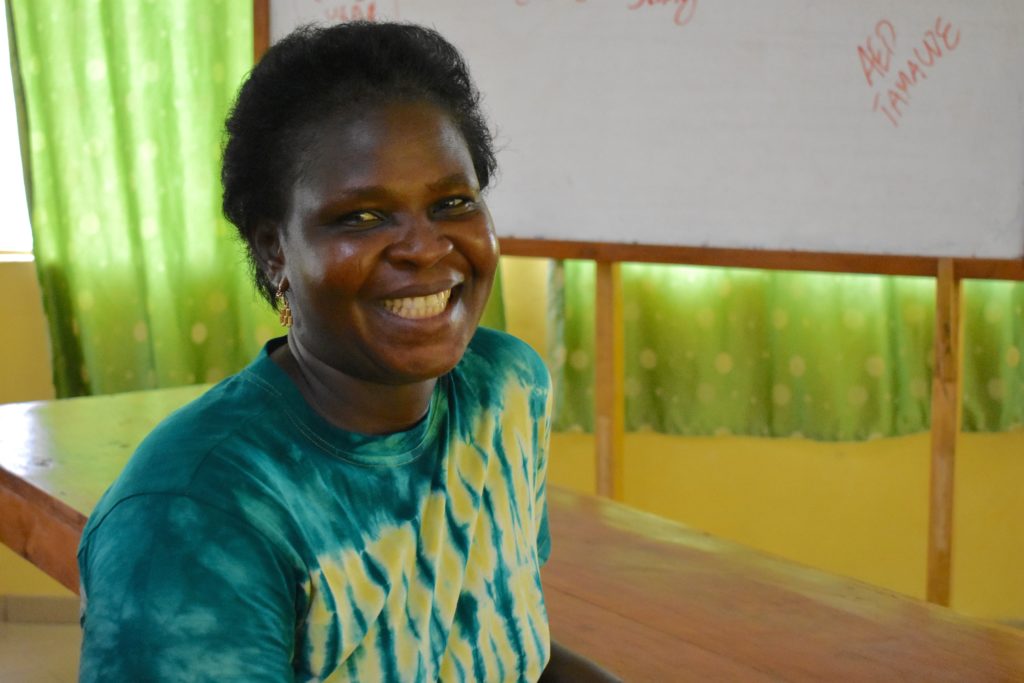
Integrate Health was founded in 2004 on the belief that health is a human right. At that time, access to HIV treatment was virtually unobtainable in Togo, despite the fact that patients throughout Europe and the United States had easy access. As a result, an HIV diagnosis was 100% fatal. A group of Togolese activists and American Peace Corps Volunteers refused to accept this status quo. For 11 years, the organization built and scaled what became one of the most effective HIV care programs in Togo. In 2015, we were approached by a group of mothers advocating for better access to quality healthcare for their children. Together, with the help of incredible mentors and government partners, we decided to integrate the HIV care systems we had developed into broader primary healthcare services. The Integrated Primary Care Program was born.
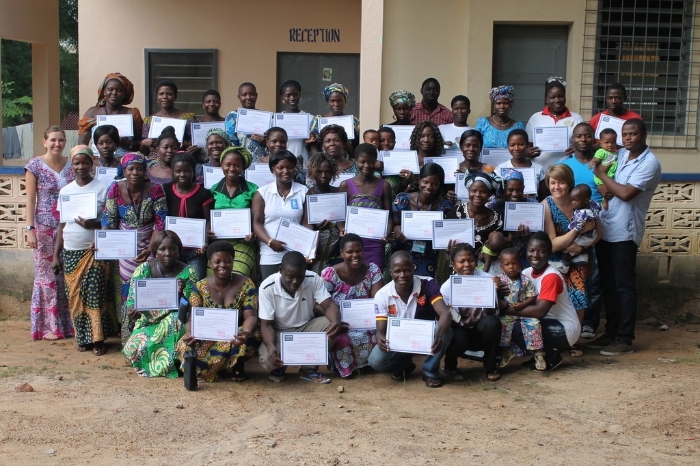
The first ever group of Integrate Health-supported Community Health Workers upon finishing their training. 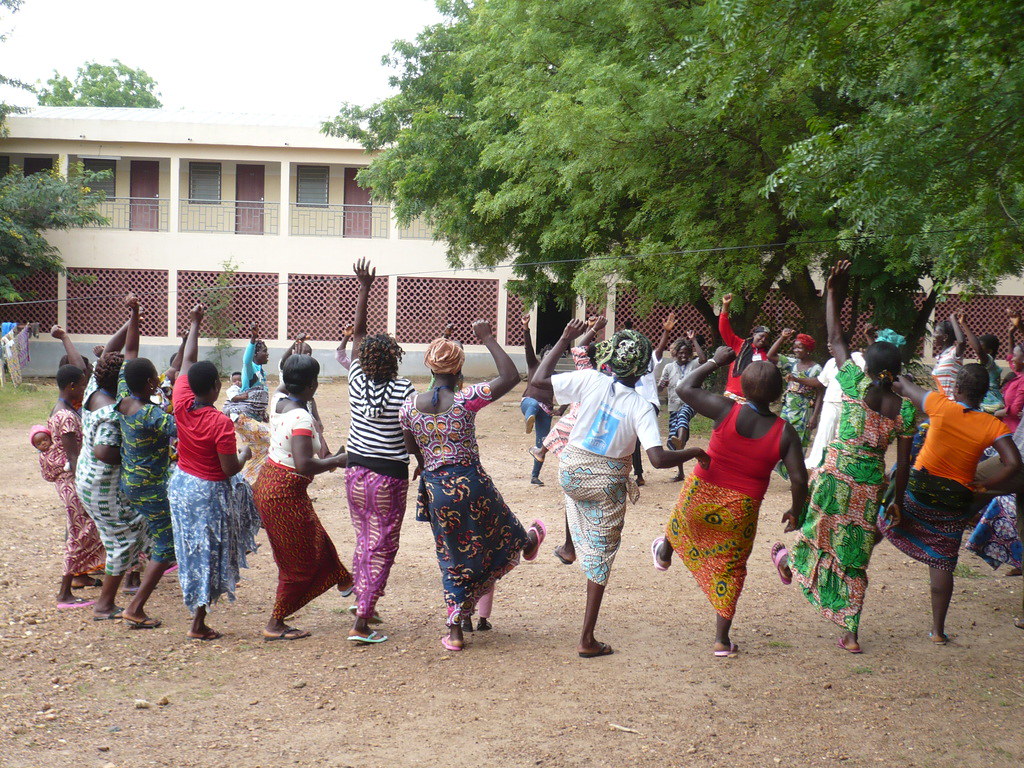
A group of Community Health Workers participating in a game during the first Integrate Health-supported Community Health Worker training.
It was clear from the first year of the pilot that the Integrated Primary Care Program was successful. Integrate Health and our government partners agreed, we needed to get the program into more clinics and communities as fast as we could. We began to develop a replication plan. We started brainstorming, whiteboarding, diagramming within the leadership team, and until we had a rough idea. Then it was time to take the plan to the experts, the Program team, the ones who actually implemented the pilot. “No way,” said Emile Bobozi, Integrate Health Program Director, shaking his head after seeing what we proposed. We aimed to expand into new clinics and their surrounding communities in a new district every six months. “It’s just not possible,” stated Emile. “Then what is possible?” we asked. We engaged Emile and his team in all the details. How long would it take to lay the groundwork in a brand new community? How quickly could we progress through each step without compromising quality? How much time was needed after launch before shifting focus to prepare for the next set of sites?
Based on Emile’s and his team’s detailed feedback from their practical experience, we decided that a minimum of 12 months was required between each new district launch: six months to get the newly launched sites stable and then six months to prepare for launch in new sites. Our government partners agreed. That conversation cemented the replication plan, which took Integrate Health from serving 40,000 patients in 2018 to serving 200,000 today. It was that conversation, and the wisdom of our team upon which leadership based their decisions, that led us to execute the replication plan nearly perfectly, on time and on budget, despite the unplanned arrival of a global pandemic.
This year, during one of the greatest public health crises of our lifetime, Integrate Health launched the Integrated Primary Care Program in a fifth district, Binah. As of July 2021, Integrate Health now serves a population of 204,000 across 25 health centers in five districts. Integrate Health employs 201 Community Health Workers (92% of whom are women), recruited from their communities to be trusted resources for healthcare. These Community Health Workers, alongside public health center staff, care for 51,202 women and 38,197 children under five in northern Togo, providing family planning, maternal and neonatal care, and treatment of the leading causes of child death.
This last year and a half has been especially challenging for the world and for our work at Integrate Health. Although health services continued during the early weeks of the pandemic, we halted preparation activities for the launch of the Integrated Primary Care Program in the fourth district,despite months of planning. This decision was incredibly hard for us. But within weeks, the community had asked for us to continue planning. By October, we launched services in the Kéran district, only three months behind our original schedule. Throughout the pandemic, Community Health Workers and staff have risen to the moment. They have acknowledged how critical the delivery of services is, especially at a time like this, and have been relentless in seeing our mission through.
Recently a funder remarked that we were the only organization she had seen that actually executed completely on the plan they laid out five years in advance. It was due to the involvement of our team in the early planning and their relentless dedication that we can stand proudly and look back at how we scaled 5x on time and on budget.
While we are taking a moment to celebrate this achievement, we are not letting up. Integrate Health is positioned to help the government of Togo realize their ambitious vision of Universal Health Coverage. The Government of Togo has pledged to improve health access while maintaining quality and advancing equity as indicated by their National Development Strategy, Roadmap 2025. This plan aims to develop a national cadre of professionalized Community Health Workers, increase financial accessibility for patients, and improve health infrastructure. The government has prioritized making obtaining healthcare easier for over eight million people, especially mothers and children. We couldn’t be more excited for this moment.
I’ll never forget the incredible hope I felt standing alongside Veronique in 2015. If this works, it could change everything, I remember thinking. As we developed those early replication plans, I knew that scaling our reach by 5x meant we could serve five times more patients, five times more communities. It also meant we could employ five times more Community Health Workers like Veronique. As we put the numbers into the plan, I could hardly believe my eyes–200 Community Health Workers. I thought about each of the 35 incredible women we had been able to hire to work full time providing healthcare to their communities. I thought about the impact that role was having on their lives, their families, and their communities. I struggled to hold back tears thinking about employing over five times that many women. Today Integrate Health is proud to support over 200 Community Health Workers who deliver care to 200,000 people and serve as a model of what is possible in a strong primary healthcare system driving toward Universal Health Coverage.

